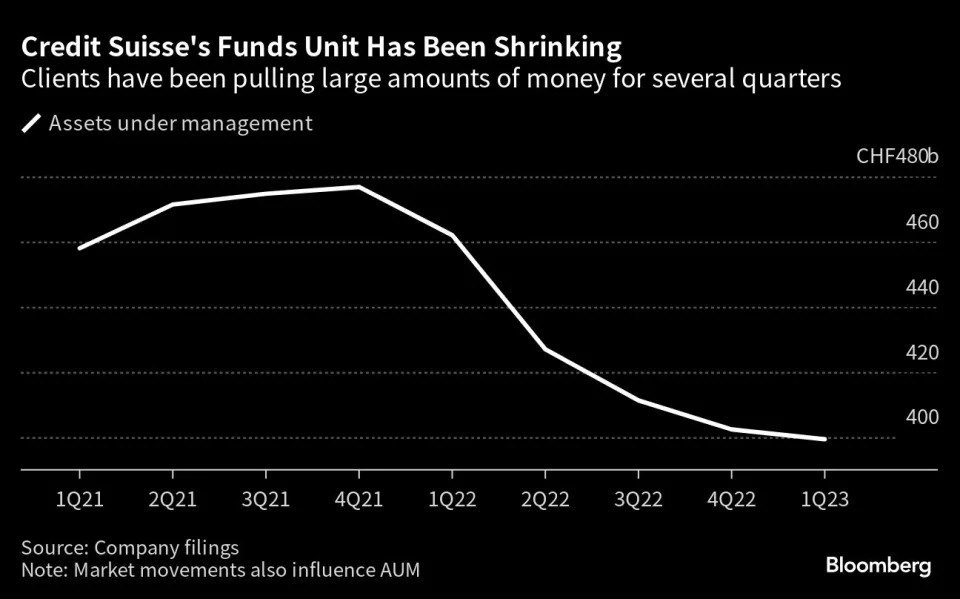Jennifer Sor
Tue, June 27, 2023

Nouriel Roubini, an economics professor, speaks at a panel discussion at the SALT conference in Las Vegas
.Rick Wilking/Reuters
The economy is likely headed for a "tropical storm" that will entail at least a mild recession, Nouriel Roubini said.
The "Dr. Doom" economist warned even a shallow downturn could hurt stock prices and result in damage.
Previously, he's sounded the alarm for a stagflationary debt crisis to hit the US economy.
The world economy is headed for a "tropical storm" that could cause big damage to markets and the global financial system, according to Wall Street's "Dr. Doom" economist Nouriel Roubini.
Roubini, who was among the first to call the 2008 financial crisis and has warned of disaster for the US economy for nearly 20 years, sounded the alarm for a coming worldwide recession in an op-ed for Project Syndicate on Tuesday.
Though he dialed back earlier predictions that the the economy was in for a "Bermuda Triangle" of financial stressors, the world economy and markets could still face significant tumult, he warned, as an economic downturn is becoming more likely as central bankers struggle to get inflation under control.
"While a severe hurricane for the global economy looks less likely than it did a few months ago, we are still likely to encounter a tropical storm that could cause significant economic and financial damage," Roubini said, outlining four possible scenarios for the world economy:
A soft landing. Central banks around the world will lower inflation to their target, and avoid a recession in the process.
A "softish" landing. Central banks will achieve their inflation targets, but push their economies into a short, mild recession in the process.
A hard landing. Central banks are unable to get inflation back down to ideal levels without creating a more serious recession. Higher interest rates will eventually tip the world economy into a downturn, and potentially spark chaos in debt markets, which will come under pressure as borrowing costs rise.
A stagflationary crisis. If central bankers give up on their inflation target to preserve financial stability, they could inadvertently cause a stagflationary crisis, a scenario where inflation becomes entrenched and expectations spiral out of control.
Roubini estimated that the second scenario of a short shallow recession was most likely to happen, as serious stressors on the world economy, such as the credit crunch stemming from banking failures earlier this year, have eased. Still, even a mild recession could hurt investors:
"But even a short and shallow recession – let alone a hard landing – would cause significant declines in US and global equities. And if central banks were then to blink, the resulting increase in inflation expectations would drive up long-term bond yields and eventually hurt stock prices, owing to the higher discount factor that would be applied to dividends," Roubini warned.
Economies around the world are already slowing down as the inflation battle drags on. The US economy has showed signs it is running out of gas as consumers pull back on spending. Meanwhile, the eurozone slipped into a technical recession after posting two negative quarters of GDP, and China's economy has also struggled amid its disappointing economic reopening following the COVID-19 pandemic.
Investors have fretted over a possible recession for the last year, as the Fed aggressively raised interest rates to combat inflation. Rates are now at their highest level since 2007, and the New York Fed is showing a 71% probability that the economy will tip into recession by May 2024.
The economy is likely headed for a "tropical storm" that will entail at least a mild recession, Nouriel Roubini said.
The "Dr. Doom" economist warned even a shallow downturn could hurt stock prices and result in damage.
Previously, he's sounded the alarm for a stagflationary debt crisis to hit the US economy.
The world economy is headed for a "tropical storm" that could cause big damage to markets and the global financial system, according to Wall Street's "Dr. Doom" economist Nouriel Roubini.
Roubini, who was among the first to call the 2008 financial crisis and has warned of disaster for the US economy for nearly 20 years, sounded the alarm for a coming worldwide recession in an op-ed for Project Syndicate on Tuesday.
Though he dialed back earlier predictions that the the economy was in for a "Bermuda Triangle" of financial stressors, the world economy and markets could still face significant tumult, he warned, as an economic downturn is becoming more likely as central bankers struggle to get inflation under control.
"While a severe hurricane for the global economy looks less likely than it did a few months ago, we are still likely to encounter a tropical storm that could cause significant economic and financial damage," Roubini said, outlining four possible scenarios for the world economy:
A soft landing. Central banks around the world will lower inflation to their target, and avoid a recession in the process.
A "softish" landing. Central banks will achieve their inflation targets, but push their economies into a short, mild recession in the process.
A hard landing. Central banks are unable to get inflation back down to ideal levels without creating a more serious recession. Higher interest rates will eventually tip the world economy into a downturn, and potentially spark chaos in debt markets, which will come under pressure as borrowing costs rise.
A stagflationary crisis. If central bankers give up on their inflation target to preserve financial stability, they could inadvertently cause a stagflationary crisis, a scenario where inflation becomes entrenched and expectations spiral out of control.
Roubini estimated that the second scenario of a short shallow recession was most likely to happen, as serious stressors on the world economy, such as the credit crunch stemming from banking failures earlier this year, have eased. Still, even a mild recession could hurt investors:
"But even a short and shallow recession – let alone a hard landing – would cause significant declines in US and global equities. And if central banks were then to blink, the resulting increase in inflation expectations would drive up long-term bond yields and eventually hurt stock prices, owing to the higher discount factor that would be applied to dividends," Roubini warned.
Economies around the world are already slowing down as the inflation battle drags on. The US economy has showed signs it is running out of gas as consumers pull back on spending. Meanwhile, the eurozone slipped into a technical recession after posting two negative quarters of GDP, and China's economy has also struggled amid its disappointing economic reopening following the COVID-19 pandemic.
Investors have fretted over a possible recession for the last year, as the Fed aggressively raised interest rates to combat inflation. Rates are now at their highest level since 2007, and the New York Fed is showing a 71% probability that the economy will tip into recession by May 2024.

.jpg)








